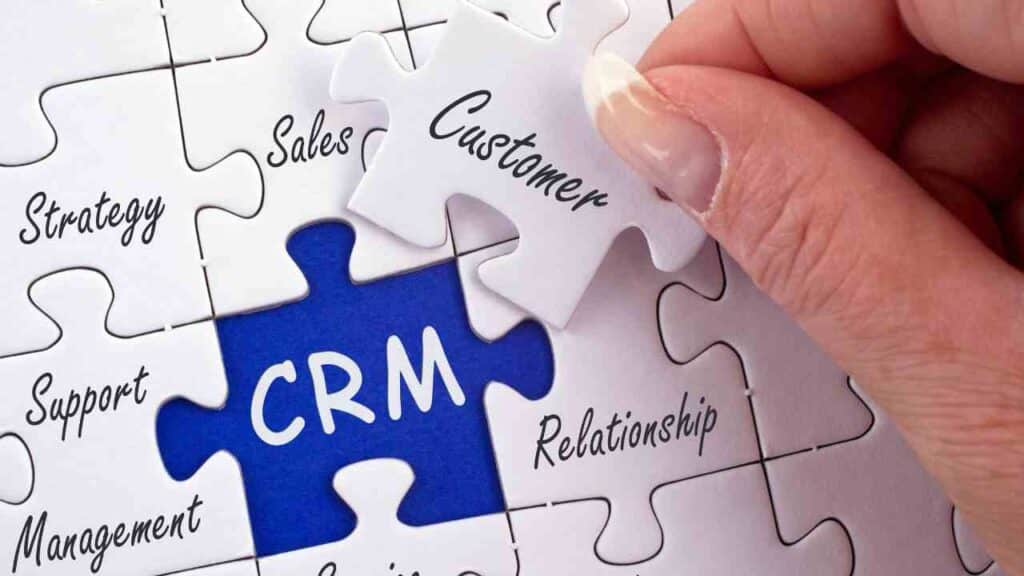Integrating Contact Management with CRM

Customer Relationship Management
Managing customer relationships is a critical aspect of any business, regardless of its size or industry. As businesses grow and customer bases expand, it becomes increasingly challenging to keep track of all the interactions and information associated with each customer. This is where contact management and customer relationship management (CRM) systems come into play. By integrating contact management with CRM, businesses can streamline their processes, improve customer satisfaction, and drive growth. In this article, we will explore the benefits of integrating contact management with CRM and provide valuable insights on how businesses can leverage this integration to their advantage.
The Importance of Contact Management
Contact management involves organizing and maintaining a database of customer information, including names, contact details, purchase history, and communication records. It provides businesses with a centralized system to store and access customer data, enabling them to effectively manage their interactions and relationships. Here are some key reasons why contact management is crucial:
- Efficient Communication: Contact management allows businesses to have a comprehensive view of their customers, making it easier to communicate with them through various channels such as email, phone, or social media.
- Personalization: By having access to detailed customer information, businesses can personalize their interactions and tailor their offerings to meet individual needs and preferences.
- Improved Customer Service: Contact management enables businesses to track customer inquiries, issues, and resolutions, ensuring timely and effective customer support.
- Enhanced Sales and Marketing: With a well-maintained contact database, businesses can segment their customers based on demographics, purchase history, or behavior, allowing for targeted sales and marketing campaigns.
The Role of CRM in Business Success
Customer relationship management (CRM) systems are designed to help businesses manage and analyze customer interactions and data throughout the customer lifecycle. CRM software provides a range of functionalities, including contact management, sales automation, marketing automation, and customer service management. Here are some key benefits of using CRM:
- 360-Degree Customer View: CRM systems consolidate customer data from various touchpoints, providing businesses with a holistic view of their customers’ interactions, preferences, and needs.
- Improved Sales Efficiency: CRM automates sales processes, such as lead management, opportunity tracking, and pipeline management, enabling sales teams to focus on closing deals and building relationships.
- Effective Marketing Campaigns: CRM allows businesses to segment their customer base, create targeted marketing campaigns, and track campaign performance, resulting in higher conversion rates and ROI.
- Streamlined Customer Service: CRM systems provide customer service teams with access to customer information, enabling them to provide personalized and efficient support.
- Data-Driven Decision Making: CRM generates valuable insights and reports on customer behavior, sales performance, and marketing effectiveness, empowering businesses to make informed decisions.
The Benefits of Integrating Contact Management with CRM
While contact management and CRM systems serve different purposes, integrating the two can bring significant benefits to businesses. Let’s explore some of the key advantages:
1. Centralized Customer Data
Integrating contact management with CRM allows businesses to have a centralized repository of customer data. This means that all customer information, including contact details, purchase history, communication records, and preferences, can be accessed and updated in one place. Having a single source of truth eliminates data silos and ensures that all departments have access to the most up-to-date and accurate customer information. This centralized view enables businesses to provide consistent and personalized experiences across all touchpoints, leading to improved customer satisfaction and loyalty.
2. Seamless Communication
By integrating contact management with CRM, businesses can streamline their communication processes. When a customer reaches out through any channel, whether it’s email, phone, or social media, the CRM system can automatically retrieve their information from the contact management database. This allows customer service representatives to have a complete view of the customer’s history and preferences, enabling them to provide personalized and efficient support. Additionally, CRM systems can automate communication workflows, such as sending follow-up emails or reminders, ensuring that no customer interactions fall through the cracks.
3. Enhanced Sales and Marketing Efforts
Integrating contact management with CRM enables businesses to leverage customer data for targeted sales and marketing efforts. By segmenting customers based on demographics, purchase history, or behavior, businesses can create personalized campaigns that resonate with their target audience. For example, a clothing retailer can send tailored promotions to customers who have previously purchased similar items. CRM systems also provide insights into customer preferences and buying patterns, allowing businesses to identify upselling and cross-selling opportunities. By aligning contact management with CRM, businesses can optimize their sales and marketing strategies, resulting in higher conversion rates and revenue.
4. Improved Efficiency and Productivity
Integrating contact management with CRM eliminates manual data entry and duplication, saving time and reducing the risk of errors. When a new contact is added or updated in the contact management system, the changes are automatically reflected in the CRM system. This automation ensures data consistency and frees up employees’ time to focus on more value-added tasks, such as building relationships with customers or analyzing data. Additionally, CRM systems provide workflow automation capabilities, allowing businesses to automate repetitive tasks, such as lead assignment or follow-up reminders. This streamlines processes, improves efficiency, and increases overall productivity.
Case Study: XYZ Company
XYZ Company, a software development firm, recently integrated their contact management system with a CRM platform. The integration allowed them to streamline their sales and marketing processes and improve customer satisfaction. Here’s how they benefited from the integration:
- Centralized Customer Data: By integrating contact management with CRM, XYZ Company had a unified view of their customers’ information, including contact details, purchase history, and support tickets. This enabled their sales and customer service teams to provide personalized and consistent experiences.
- Efficient Communication: With the integration, XYZ Company’s customer service representatives had access to customer information in real-time, allowing them to respond promptly and accurately to customer inquiries. This resulted in improved customer satisfaction and reduced response times.
- Targeted Marketing Campaigns: By leveraging the integrated contact management and CRM system, XYZ Company was able to segment their customer base and create targeted marketing campaigns. They sent personalized emails to customers based on their preferences and purchase history, resulting in higher open and click-through rates.
- Streamlined Sales Processes: The integration enabled XYZ Company’s sales team to track leads, opportunities, and deals in one system. This eliminated the need for manual data entry and improved sales efficiency. Sales representatives could easily access customer information and track their interactions, leading to better-informed sales conversations.
Integrating contact management with CRM is a powerful strategy for businesses looking to streamline their processes, improve customer satisfaction, and drive growth. By centralizing customer data, enabling seamless communication, enhancing sales and marketing efforts, and improving efficiency, businesses can gain a competitive edge in today’s customer-centric market. With the right CRM platform and contact management system, businesses can unlock the full potential of their customer relationships and achieve long-term success.
Discover the power of integrating contact management with CRM with SaasExpert.ca – Your All-In-One Sales and Marketing Platform for small businesses, agency owners, and marketers.
Check out our “People Also Ask” section for more detailed information about CRM’s.
Learn more about “Increasing Efficiency with Contact Management via CRM” right here.
Frequently asked questions about Integrating Contact Management with CRM.

Why is integrating contact management with CRM the talk of the town? 🎤
Well, imagine having a superpower where you can remember every detail about everyone you meet, from their favorite color to their last purchase. That’s what CRM does when integrated with contact management! It’s like giving your business a memory boost, ensuring you never have that awkward “Who are you again?” moment with a client. Talk about making a lasting impression! 🦸♂️
Can I integrate my CRM with other tools, or is it a lone wolf? 🐺
Oh, your CRM loves company! It’s the life of the party and gets along with almost every business tool out there. From email marketing platforms to accounting software, your CRM is ready to mingle and make your life a whole lot easier. So, no lone wolf syndrome here; it’s all about teamwork! 🤝
How does CRM automation make my contact management life a breeze? 🌬️
Imagine having a personal assistant who never sleeps, doesn’t need coffee breaks, and handles all the repetitive tasks like a champ. That’s CRM automation for you! It takes care of the mundane so you can focus on the fun stuff, like strategizing and, you know, taking actual coffee breaks. ☕
Are there CRM solutions that cater to specific industries, or is it a one-size-fits-all kind of deal? 👗
CRM solutions come in all shapes and sizes! Whether you’re in healthcare, real estate, or even the circus industry (yes, clowns need CRM too!), there’s a specialized CRM out there tailored just for you. It’s like having a bespoke suit; it fits just right and makes you look fabulous! 🎩
How does a CRM system improve the quality of my jokes… I mean, customer interactions? 😂
While we can’t guarantee that a CRM will make you the next stand-up sensation, it sure will enhance your customer interactions! With all the insights and data at your fingertips, you’ll know exactly what makes your customers tick (or laugh). So, while we can’t promise better jokes, we can assure better customer relationships. And who knows, maybe a chuckle or two along the way! 🎭






